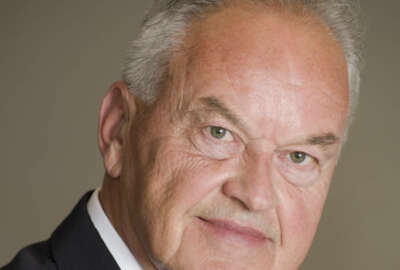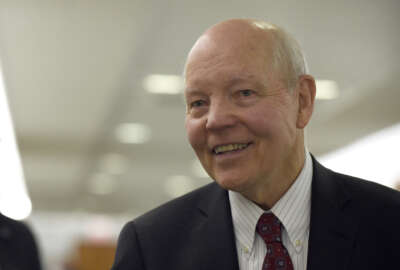
Could the private sector do your job better and at a lower cost?
If you work for the federal government, what are the odds your job will be outsourced? Senior Correspondent Mike Causey says it's round-up-the-usual-suspects time.
(Editor’s note: An earlier version of this column stated that a recent FAA reauthorization bill would set up a for-profit government operation. The bill actually proposes a private, not-for-profit organization.)
In some people’s perfect world, the private sector would take over many functions now performed by government and do them better, cheaper and faster. Or so they believe. Some of them are currently running for the presidency. The Pentagon could stay in government. Maybe get bigger. Also the CIA and FBI could stay within the civil service cocoon. NASA astronauts could hitch rides with the Russians (wait, we are already doing that… but you get the idea. In the New Utopia, many, if not most, other federal functions could be outsourced. Life would be better and taxes would be lower. Maybe, maybe not.
On the other side, there are groups and people — including at least one presidential candidate — who think the government isn’t doing enough, especially in areas like education. Or too much, in the case of the Defense establishment. They think the government should set certain standards, and things like minimum salaries, that are now under local or state control.
The poster child for privatization is the Internal Revenue Service, which is also one of Uncle Sam’s few moneymakers/collectors. The IRS is the round-up-the-usual-suspects when somebody decides the private sector could do a better job.
Twice in recent times, Congress and the White House have authorized private debt collectors — aka junkyard dog outfits — to collect back taxes. The collectors used private data given to them by the IRS, and got a cut of whatever they collected. In some cases, the privatized agents went overboard to the point that congressional hearings were held and the privatization programs canceled. At least twice. But politicians have short memories, so that wheel will probably be reinvented again somewhere down the road.
In a speech last week at the National Press Club, IRS Commissioner John Koskinen said a recent poll indicated that 12 percent of Americans said they like Russia’s Vladimir Putin better than they like the IRS. That definitely says something, although nobody is quite sure what. But he also said the agency spends only 35 cents for every $100 it collects, and that the complex tax code the IRS must enforce — and taxpayers must wade through — was created by Congress and special interest groups.
The latest privatization effort is pointed at the Federal Aviation Administration’s air traffic control system that would set up a private, not-for-profit operation. A column on the subject last week points you to a real-time website that shows the extent of air traffic over the U.S., and around the world. It is staggering. The column also prompted this comment from someone who worked in the important Air Traffic Control system as a contractor and a fed:
He also said that “some of the privatization that FAA has already done was justified to make it less bloated and more efficient. But the Air Traffic Control itself can’t be left to a system where stockholder oversight will weigh in with government oversight. That’s a lives and property culpability level which should have no private sector interference or culpability.” — M.R.
Nearly Useless Factoid
Ace Purple is the official mascot of the University of Evansville’s Purple Aces.
Source: Wikipedia
Copyright © 2025 Federal News Network. All rights reserved. This website is not intended for users located within the European Economic Area.
Mike Causey is senior correspondent for Federal News Network and writes his daily Federal Report column on federal employees’ pay, benefits and retirement.
Follow @mcauseyWFED






